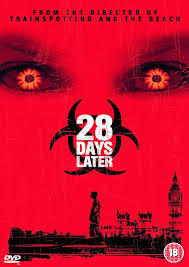The Lasting Impact of 28 Days Later on Horror Cinema

Introduction
The film ’28 Days Later,’ directed by Danny Boyle and released in 2002, marked a significant turning point for the horror genre. Blending elements of post-apocalyptic fiction with unnerving themes of contagion and survival, this British film reinvigorated interest in zombie narratives and shaped modern horror cinema. With its gritty, realistic portrayal of a world ravaged by a viral outbreak, ’28 Days Later’ continues to influence filmmakers and audiences alike, making its relevance undeniable even two decades later.
The Plot and Its Implications
’28 Days Later’ follows Jim, played by Cillian Murphy, who awakens from a coma to find London deserted and overrun by the Infected—humans driven into a frenzy of violence due to a rage virus. The film expertly crafts a narrative that dissects societal breakdown, human nature, and the fragility of civilization. Through stunning cinematography and a haunting score by John Murphy, the chilling atmosphere amplifies the horror of isolation and the fight for survival.
Cultural Influence
The impact of ’28 Days Later’ extends beyond the screen. It is credited with popularizing the fast-zombie trope, diverging from the slow-moving classical zombies of previous films. This revision of the zombie iconography influenced several subsequent films and TV shows, including ‘The Walking Dead’ series and ‘World War Z’. Furthermore, the film’s realistic approach to a post-apocalyptic scenario led to a resurgence in interest in the genre, paving the way for a new wave of horror that addressed contemporary anxieties.
Legacy in the Horror Genre
In the years following its release, ’28 Days Later’ has been analyzed and celebrated in various forums, including film studies and pop culture discussions. Its commentary on government response, public health crises, and societal collapse has resonated with many in light of recent global events, such as the COVID-19 pandemic. Today, ’28 Days Later’ is often regarded as not just a hallmark of horror but also an important cinematic work that engages with deeper themes relevant to its time.
Conclusion
The significance of ’28 Days Later’ reaches far beyond its initial release, leaving a lasting mark on the horror landscape. Its unique storytelling, chilling visuals, and commentary on human nature ensure that it will remain relevant for years to come. As audiences continue to navigate their fears and uncertainties, this film serves as a powerful reminder of the fragility of society and the enduring human spirit in facing adversity. In the evolving narrative of horror cinema, ’28 Days Later’ will always occupy a pivotal role.









